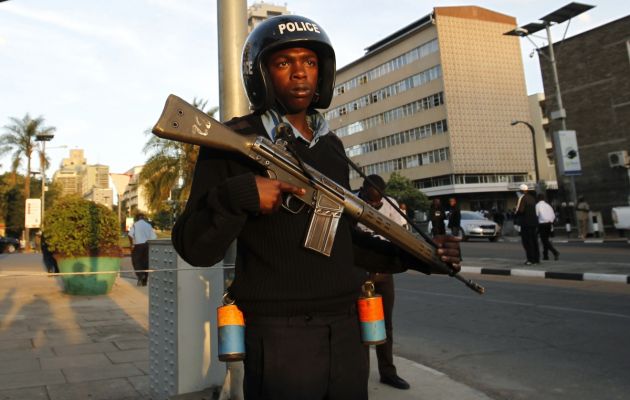Kenyan church leaders back country's restrictive anti-terror law

Leaders from Kenya's Anglican and Catholic churches along with other Christian leaders are backing the government in its attempt to create a new law to help fight terrorism.
The Security Laws (Amendments) Bill 2014 passed a second reading in Kenya's parliament, with a 96-45 vote, World Magazine reported on December 15.
But some Kenyan lawmakers exchanged blows and the deputy speaker had water thrown on her during a rowdy parliamentary session which approved changes to the tough new security bill, the BBC reported on December 18.
Members of parliament from opposition parties shouted and tore copies of the bill, shouting that Kenya is becoming a "police state."
Four lawmakers were assaulted and another two fought with their fists.
Parliamentary officials adjourned the debate twice, before the controversial changes were pushed through.
The Kenyan government says it needs more powers to fight extremist Islamists threatening the country's security who are using terror to fight their cause.
Al-Shabab, a terror group linked with al-Qaeda, has escalated a military campaign in Kenya.
It has killed 64 people in two brutal attacks in the north-eastern Mandera region since the end of November. In both incidents, non-Muslims were killed after being separated from Muslims.
Supporters say the bill seeks to improve the capacity of security services to fight terrorism, but critics say it will roll back important fundamental rights.
Archbishop Eliud Wabukala of the Anglican Church of Kenya and Cardinal John Njue of the Roman Catholic Church told journalists before the vote the laws are necessary to stop runaway insecurity.
"This situation regrettably leads us to conclude these attacks, perpetuated by people claiming to be al-Shabab, are taking a religious angle," Archbishop Wabukala said at the news conference
Church leaders said on December 10 that attacks the al-Shabab extremists from Somalia in Kenya are progressively aimed directly at Christians, including targeted executions of non-Muslims.
Catholic, Anglican, Presbyterian, Methodist and evangelical African Inland Church leaders have noted that Kenya has had more than 20 attacks this year, resulting in the deaths of more than 200 people, leaving many more injured.
The attacks at first targeted Christian places of worship, but now single out Christians in public transportation and workplaces, the church leaders said.
They said Muslims must redouble efforts to preach religious tolerance and end youth radicalization.
"They must move beyond merely condemning the attacks to initiating practical steps to reach out at the sympathizers of terror and help us build bridges between faiths and communities," said Wabukala.
Cardinal Njue said that although recent executions displayed religious patterns, Kenyans should avoid statements that further divide the country along religious lines.
Of Kenya's 45 million people about 82 percent are Christians and about 11 percent, who mainly live along the Indian Ocean coast are Muslims.
